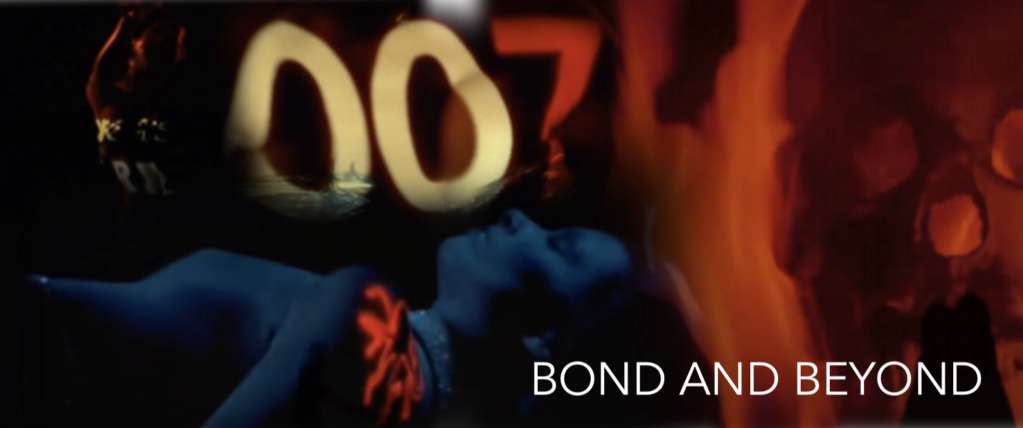perdogg

Posts : 10
Member Since : 2011-08-26
 |  Subject: A Gothic Fleming-Bond movie based on the influences of Rohmer, Quinn, or Merritt? Subject: A Gothic Fleming-Bond movie based on the influences of Rohmer, Quinn, or Merritt?  Sat May 18, 2013 8:03 pm Sat May 18, 2013 8:03 pm | |
| I hope the moderators do not mind me posting this in "Literary Bond". This posting deals mainly with the influences and similarities of other works of fictions to Ian Fleming's James Bond.
The last Gothic Bond movie we had was “Live and Let Die”. Unfortunately, because of the misunderstood title of chapter 5, the movie appeared to have “camped” down to reflect the blackplotation films of the early 70s. Sir Roger Moore’s interpretation of “Live and Let Die” was that novel‘s “treatment of black people was extremely out of place in today’s society” (James Bond Omnibus Vol One – Oct 2009). Analysis by author Ken Follet suggests that this was Fleming’s tribute to the culture of Harlem that Fleming loved (Live and Let Die Folio Edition – 2007). This is unfortunate because, the backstory of “Live and Let Die” made the ‘spy’ story more interesting. In fact, the gothic backstory somewhat reminded me of Sax Rohmer’s “Green Eyes of Bast” in the way the reader was forced to evaluate the information given to him on the page.
I really do not think it was given a proper treatment.
Another of example of a wonderful gothic story would be the novel by Sax Rohmer “The Seven Sins” with Rohmer’s own French James Bond “Gaston Max”. A tale of gothic murder mystery with the backdrop of wartime London, Nazi spies, beautiful women, the love of gambling, and a clear explanation of the mystical properties of the number 7. We know that Fleming was influenced by Sax Rohmer since “Dr No” was based on Fu Manchu, probably “The Bride of Fu Manchu”. I believe that Flemings own “Live and Let Die” was influenced by Sax Rohmer “The Island of Fu Manchu”.
I am not saying the Die Hard movies were perfect by any means, but I have to give that franchise’s writers credit for seeking inspiration outside of Marvel comics or Jason Bourne for new material. I believe the movie “Die Hard III” was loosely based on the original Goldfinger novel. We also know that “Die Hard II” was based on Walter Wager’s “58 Minutes” with the original story by Roderick Thorp’s 1979 “Nothing Lasts Forever”. In fact, the fourth “Die Hard” movie was based on an article in Wired Magazine called "A Farewell to Arms" by John Carlin (Wired Magazine May 1997).
So it would be possible to explore other authors’ works and influences other than Fleming, where it has been admitted that Fleming’s material has been exhausted. I would find this more interesting than continuing to explore the leftist psychobabble, as Mendes said, the “combination of lassitude, boredom, depression, difficulty with what he's chosen to do for a living, which is to kill" (Digital Spy - Published Sunday, Apr 29 2012) and which John Logan has promised to revisit.
Even though Fleming Bond did experience these thoughts, hardly the majority of time, why did Mendes feel the need to emphasize these characteristics? Possibly because Mendes believes, like all leftists, that Bond engaged in non-humanistic activities and that Bond needed to “think on his sins”. Bond did not enjoy killing, like most people, but felt it was necessary as long as it wasn’t killing in cold blood and in the line of duty. He understood that carrying one of the three 00-numbers meant that killing was part of the job.
However, in reading Abraham Merrit’s “The Seven footprints to Satan”, I can see some similarities in Fleming’s Goldfinger and Rohmer’s “Fu Manchu’. All of these novels contemporary with Ian Fleming exhibit the Manichaeism that is missing in today’s Bond movies. “The Seven footprints to Satan” has all of the Bond elements, an agent, a woman, an intelligent Villain, and a question that will keep Bond fans guessing to the end. Another author that should be considered in Seabury Quinn. An American gothic writer whose novel dealt with Satanism. His most famous male lead was French detective Jules de Grandin. Quinn’s novels were influenced by Aleister Crowley, who some believe is the model for Le Chiffre in Fleming’s Casino Royale.
I am not suggesting that the writers turn 007 into “007 Vampyre Killer” although Broccoli and Wilson would do it in a heartbeat if they could make a buck doing so. I think it might be funny for Dame Judi Dench to return from grave as a Vampyre haunting Whitehall, Then Bond can hire Christopher Lee as a sort of Van Hesling type character. Only kidding, of course. |
|
